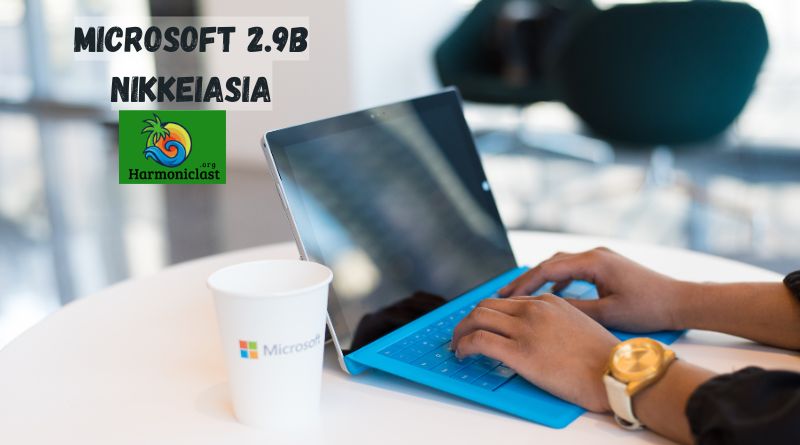Microsoft’s $2.9 Billion Investment: A Landmark Move in Asia
Microsoft’s recent announcement to invest $2.9 billion in artificial intelligence (AI) and cloud infrastructure in Southeast Asia marks a defining moment for the region’s technological growth. The initiative, which was reported by NikkeiAsia, outlines Microsoft’s commitment to expanding its digital footprint in countries like Malaysia, Indonesia, and Thailand. This investment signifies not only a push for digital transformation in emerging markets but also a strategic move to compete globally in the AI race. The Microsoft 2.9B NikkeiAsia headline has sparked major interest across the tech industry and regional governments, with many viewing it as a game-changer for Southeast Asia.
Expanding Cloud Infrastructure: A Foundation for Growth
Bridging the Digital Gap in Southeast Asia
The core component of Microsoft’s plan is the establishment and enhancement of cloud data centers across the region. These facilities will form the backbone of local digital ecosystems, providing high-speed data processing capabilities, improved cybersecurity infrastructure, and efficient data storage solutions. By enabling localized cloud services, Microsoft is aiming to support businesses of all sizes in adopting digital tools, from small startups to multinational corporations. The microsoft 2.9b nikkeiasia coverage highlights how these data centers are set to power AI tools and machine learning services, which are crucial for modern business operations and government digital services.
AI Skills and Workforce Development
Building People for the Age of AI
A big part of Microsoft’s $2.9 billion investment is going toward teaching more than 2.5 million individuals in Southeast Asia how to use AI and other digital tools by 2025. This project is more than just developing infrastructure; it’s also about giving workers the skills they need to succeed in today’s market. NikkeiAsia says that Microsoft will engage with schools and government entities in the area to offer training programs, workshops, and certification courses. This component of the investment is very important to making sure that AI technologies are not just made but also used in a responsible and effective way. The Microsoft 2.9b Nikkeiasia project combines ambitions for both technology and people.
Making strategic partnerships in the region stronger
Working together with governments and businesses
Microsoft’s growth in Southeast Asia is part of a larger trend. The big tech company is working closely with local governments to make sure that its services fulfill the demands of each country. Microsoft’s personalized approach builds trust and acceptance by providing safe cloud solutions for government agencies and helping businesses update their IT systems. These alliances are also intended to help create innovation ecosystems in important areas including healthcare, finance, education, and manufacturing. The Microsoft 2.9b Nikkeiasia study shows how Microsoft’s strategy alignment with public policy is giving the company an edge over its competitors in this rapidly growing area.
Geopolitical Effects and Positioning in the Market
Balancing the power of regional tech
Microsoft’s acquisition could also be seen via a geopolitical perspective, as it faces more competition from Chinese and regional tech giants. The company can protect itself from changes in the Chinese market by having a strong presence in Southeast Asia. At the same time, it may strengthen ties with countries that are friendly to the U.S. This acquisition also puts Microsoft in a good position to become the top cloud and AI provider in markets that are looking for alternatives to Chinese tech titans. The Microsoft 2.9 billion nikkeiasia story is not just a financial commitment; it is also part of a larger geopolitical strategy to keep the company at the top of the tech world.
In conclusion, Microsoft will help Southeast Asia get ready for the future.
According to NikkeiAsia, Microsoft’s $2.9 billion project in Southeast Asia is a game-changing step toward defining the region’s digital future. Microsoft is setting the groundwork for digital economies that are open to everyone and can last for a long time by focusing equally on building infrastructure, training people, and working together strategically. Southeast Asia is set to become a major participant as AI continues to change sectors around the world. This is because of ambitious investments like this one. The Microsoft 2.9b Nikkeiasia story isn’t just about numbers; it’s also about vision, empowerment, and how the whole area is becoming more digital.

